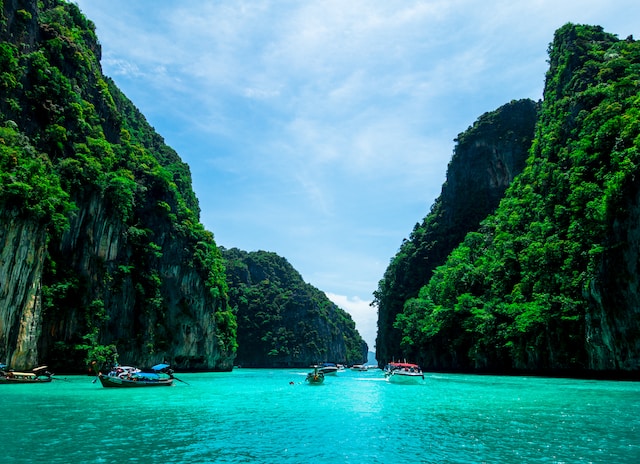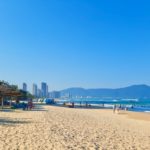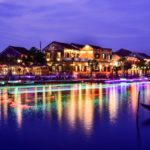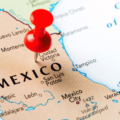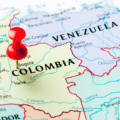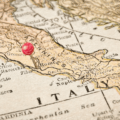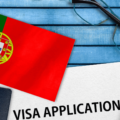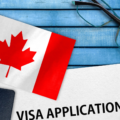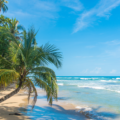Have you ever had that feeling of returning to a place and it feeling both completely new and exactly like coming home? That’s me, Jeff the “chilled nomad,” stepping back into Phuket in 2025.
It’s been a little while, and I was curious to see if this island paradise still holds the top spot for digital nomads like us.
I’ve spent years travelling the world as a freelance copywriter, and Phuket has always had a special pull. It’s that perfect mix of stunning scenery and the infrastructure we need to actually get work done.
So, I decided to revisit and create the ultimate 2025 guide for you. I’ll walk you through everything I’ve rediscovered, from the best coffee shops to work from to how to navigate the island like a local. Let’s explore it together.
Why Phuket Is A Top Destination For Digital Nomads
Coming back to Phuket in 2025, I’m reminded of why I fell in love with this place. It’s a top-tier destination for digital nomads because it nails the essentials: an affordable lifestyle, solid internet, amazing food, endless adventures, and great places to work. It’s still got that magic balance of productivity and paradise.
Affordable Cost Of Living
One of the biggest draws for me has always been the affordable cost of living in Phuket. My money just goes further here, and in 2025, that’s still very much the case. You can live a really comfortable lifestyle without the financial stress you might find in other global hubs.
For example, a delicious, filling meal from a local street stall can cost as little as 50-60 THB. A one-bedroom apartment can range from 15,000 to 35,000 THB per month, depending on where you want to live. My personal sweet spot is usually around the Rawai or Nai Harn area, where things are a bit more relaxed.
A recent 2025 analysis shows a single person can live comfortably in Phuket for around $1,392 per month, which is a fraction of what you’d pay in a major Western city.
This affordability means I can stress less about finances and focus more on my work and on enjoying the incredible island lifestyle.
Digital Infrastructure And Connectivity
As a digital nomad, my livelihood depends on connectivity, and Phuket’s infrastructure in 2025 is more reliable than ever. The island is well-equipped with high-speed fiber internet and strong 5G coverage, making it easy to stay productive.
Getting set up is simple. I usually grab a tourist SIM card right at the airport. Major providers like AIS, DTAC, and TrueMove H offer fantastic packages. For instance, AIS has an “Infinite Package” that gives you unlimited 5G data for 30 days for about 1,199 THB, which is perfect for heavy data users like me. The average internet speed across the island is a solid 50 Mbps, which is more than enough for video calls and large file transfers.
A pro tip I’ve learned over the years is to always carry a universal adapter. While most modern cafes and condos have compatible power outlets, some older buildings might not. Having one in my bag has saved me from a dead laptop more than once.
Co-working Spaces in Phuket, Thailand
Phuket’s co-working scene has seriously blossomed, and in 2025, there are more than 50 spaces scattered across the island. Whether I’m looking for a quiet spot to focus or a vibrant community to network with, there’s a place for every mood.
A day pass can be as cheap as 100 THB (about $3 USD), while monthly memberships start around 2,800 THB (about $80 USD), making it super accessible.
One of my go-to spots has always been Bayaco coworking space in Phuket Town. It’s open 24/7, has reliable internet, and the free coffee is a lifesaver on deadline days. Another great one is Garage Society Patong Beach, which is perfect if you want to be close to the action and hit the waves after work.
But this trip, I’ve been spending more time at some of the newer places that have popped up, like HATCH in Old Phuket Town and Grind Time Coworking in Chalong. HATCH has a fantastic community and hosts regular networking events, which are great for meeting other remote workers. Grind Time is spread over three levels, including a dedicated silent floor, which is amazing for deep focus sessions.
Diverse Cuisine
The food in Phuket is, without a doubt, one of my favorite things about being here. It’s a true foodie paradise, with an incredible diverse cuisine that caters to every craving and budget. From sizzling street food to upscale dining, I’m always discovering something new.
Of course, the local Thai dishes are the star. I can never get enough of classics like Pad Thai or a rich, fragrant Massaman Curry. One of my personal rituals is to visit Raya Restaurant in a beautiful heritage building in Old Phuket Town for their famous crab curry with betel leaves.
But sometimes, you just want a taste of home. Phuket has a fantastic selection of Western cafes and restaurants. For a great steak or fresh seafood, CHAR’D at the Avista Grande Phuket Karon is a fantastic choice, and it was recently awarded as one of the best new hotel restaurants in Asia.
And for my fellow plant-based nomads, you’ll be happy to know that finding vegetarian and vegan options is incredibly easy here.
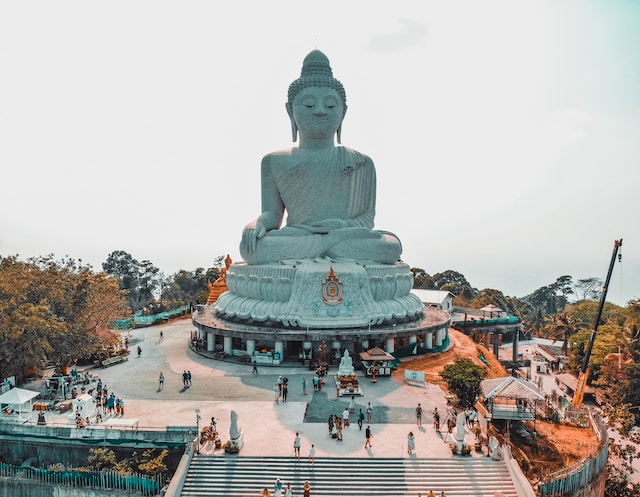
Big Buddha Phuket, Karon, Mueang Phuket District, Phuket, Thailand
Outdoor Activities
One of the best parts of the digital nomad lifestyle in Phuket is the ability to close my laptop and be surrounded by incredible nature within minutes. The island is an absolute playground for anyone who loves the outdoors.
The beaches are world-class. There are over 30 to choose from, each with its own vibe. I love starting my day with a surf session at Kata Beach or heading to the calmer waters of Nai Harn for a swim. For something truly special, a boat trip for some snorkelling at Coral Island is a must-do; the water is crystal clear and teeming with colorful fish.
For a dose of greenery, the hiking trails here offer some of the most rewarding views. The hike up to the ‘Big Buddha’ is a classic for a reason. The 45-meter-tall statue is impressive up close, and the panoramic view from the top is absolutely breathtaking. Most of these outdoor activities are free or very low-cost, making it easy to stay active and explore without breaking the bank.
Location And Geography
Phuket is perfectly positioned on the eastern coast of Thailand in the Andaman Sea. As the country’s largest island, it’s about 48km long and 21km wide, which gives it a fantastic diversity of landscapes. You’ve got everything from the lush, green hills and rubber plantations in the interior to the stunning coastline dotted with world-famous beaches.
This geography is what makes it so appealing. I can be working in a modern cafe in Phuket Town in the morning and then easily ride my scooter down to Rawai or Nai Harn in the south for a sunset swim. These southern neighborhoods are where many digital nomads and expats tend to congregate, creating a really nice, laid-back community vibe.
Climate And Weather Patterns
Phuket has a tropical climate, which means it’s pretty much warm and humid all year round. The weather is split into two main seasons: the wet season and the dry season.
The dry season, from November to April, is peak tourist time. You can expect tons of sunshine and blue skies, making it perfect for beach days and exploring. It’s my favorite time to be here, but it’s also the busiest.
The wet season runs from May to October and brings heavier rainfall and thunderstorms. While that might sound like a downer, it has its perks. The island is much quieter, accommodation prices are lower, and the rain usually comes in short, intense bursts rather than all-day drizzles. The landscape also becomes incredibly green and lush during this time.
Cultural Attractions
Beyond the beaches and laptops, Phuket has a rich cultural side that I love exploring. It’s not just a party island; it’s a place with a deep history that’s fascinating to uncover.
My favorite place to soak it all in is Old Town Phuket. The streets are lined with colorful Sino-Portuguese architecture that dates back to the early 20th century. It’s filled with charming cafes, art galleries, and little shops. I often find myself spending an afternoon just wandering around, grabbing a coffee, and people-watching.
The island is also home to some beautiful Thai Buddhist temples, known as ‘Wats’. Wat Chalong is one of the most important and visually stunning temples in Phuket. It’s a peaceful place to visit and offers a glimpse into the local religious beliefs and traditions. It’s these cultural experiences that make living in Phuket so much more than just a work-cation.
Accommodation Options For Digital Nomads
Finding a great place to live is super easy in Phuket, with tons of options to fit any budget or style. In 2025, the variety is better than ever, from social hostels to private villas.
Hostels, Hotels, And Airbnbs
Phuket really has accommodation for every type of traveler. Whether you’re on a shoestring budget or looking for a bit of luxury, you’ll find it here.
- Hostels: If you’re looking to meet other travelers, hostels are a fantastic and affordable choice. Many, like the popular **Lub d Phuket Patong**, have a great social atmosphere with shared rooms, common areas, and even co-working spaces.
- Hotels: The island is packed with hotels for every budget. You can find simple, clean guesthouses for a low price or splurge on a five-star resort with all the amenities.
- Airbnbs: For longer stays, I often prefer renting an Airbnb. It gives me my own space with a kitchen, and you can often find great monthly discounts. My pro tip is to always read recent reviews to check for comments on the Wi-Fi speed before booking.
Especially during the high season from November to April, I recommend booking in advance to get the best spots and prices.
Co-living Spaces
For digital nomads who want a seamless blend of work, life, and community, co-living spaces are an amazing option. These places are specifically designed for us, combining private accommodation with shared workspaces and social events.
Here are a few top spots I recommend checking out in 2025:
- Outpost: Located in the relaxed southern area of Rawai, Outpost is a huge favorite among nomads. They offer packages that bundle your room, desk space, and access to community events, making it a one-stop shop for getting settled.
- KoHub: While technically on the nearby island of Koh Lanta, KoHub is legendary in the nomad scene and worth a mention. It has an incredible community vibe surrounded by lush nature, perfect for focusing.
- The LifeCo: If you’re into health and wellness, this spot in Kata Beach is for you. It combines co-living with detox and wellness programs, so you can focus on both your work and your well-being.
- Nomad House: This is a great, affordable option near Patong Beach. It’s a smaller setup with fully furnished shared apartments, making it easy to connect with other remote workers.
The digital nomad community in Phuket
The digital nomad community here in 2025 is more vibrant and connected than ever. It’s one of the best parts of being on the island. You’re surrounded by like-minded people who understand the lifestyle, which makes it easy to build both personal and professional connections.
Coworking spaces like HATCH and Garage Society are central hubs for the community, regularly hosting workshops, networking events, and casual meetups. I’ve found these to be invaluable for skill-sharing and just making new friends.
Beyond the official events, there are several active Facebook groups, like “Phuket Digital Nomads,” where people share tips, organize social gatherings, and answer questions. Whether it’s a beach volleyball game at sunset or a weekly dinner, there’s always something happening. This supportive and active community is a huge reason why Phuket continues to be a top destination for remote workers.
Best Neighbourhoods To Stay In
Choosing the right neighborhood in Phuket can really shape your experience. Each area has its own unique vibe, so it’s all about finding the one that fits your lifestyle. Here are my top picks for 2025:
- Nai Harn: Tucked away on the southern tip, this area is perfect if you want peace and quiet. It’s known for its stunning beach and is surrounded by nature, making it a relaxing base.
- Rawai: Just next to Nai Harn, Rawai is a favorite for long-term nomads and expats. It has a very laid-back feel, great seafood restaurants, and a more residential vibe than the touristy spots.
- Kata & Karon: These neighboring beaches offer a great middle ground. They’re more developed than the far south but less intense than Patong, with plenty of cafes, restaurants, and accommodation options.
- Old Town Phuket: If you love culture, history, and great coffee, this is your spot. You’re surrounded by beautiful architecture and some of the island’s best cafes and co-working spaces, like HATCH.
- Patong Beach: For those who want to be in the heart of the action, Patong is the center of nightlife and entertainment. It’s busy and energetic, with everything you could possibly need right at your doorstep.
Connectivity And Digital Infrastructure In Phuket
For a digital nomad, nothing is more important than reliable connectivity. I’m happy to report that in 2025, Phuket’s digital infrastructure is top-notch, making it an incredibly easy place to work remotely.
Internet Access
High-speed internet is widespread across the island. Most cafes, hotels, and co-working spaces offer free and reliable WiFi. The average speed you’ll find is around 50 Mbps, which is plenty for video calls, streaming, and downloading large files. For even more stability, co-working spaces like Phuket Co Working Space in the Boat District offer blazing-fast 1GBPS connections. This robust infrastructure means you rarely have to worry about getting knocked offline in the middle of a project.
SIM Cards And Mobile Data
Staying connected on the go is crucial, and getting a local SIM card in Phuket is both easy and affordable. You can pick one up right at the airport upon arrival. The three main providers are AIS, DTAC, and TrueMove H, and all offer competitive tourist packages with generous data allowances.
According to 2025 network data, AIS has the fastest overall performance and widest 5G coverage, making it a great choice if speed is your top priority. You can get plans like an 8-day unlimited 5G package for around 449 THB (about $13 USD) or a 30-day plan for 1,199 THB (about $35 USD). This makes it simple to have a reliable connection wherever you are on the island.
Power Outlets And Voltage
This might seem like a small detail, but it’s a critical one for any digital nomad. In Phuket, the standard voltage is 220-240V AC. The power outlets are typically Type A, B, C, and O, which accommodate both flat and round two-pronged plugs.
Most modern places are equipped to handle international devices, but I never travel without a universal adapter. It’s a small thing to pack that can be a real lifesaver, especially in older buildings or more remote areas. Also, it’s a good idea to check if your electronics are dual-voltage. Most modern laptops and phone chargers are, but it’s always better to be safe and avoid damaging your gear.
Exploring Local Cuisine In Phuket
One of the true joys of living in Phuket is the food. The island is a culinary hotspot where you can find everything from authentic, spicy Southern Thai dishes to comforting Western favorites. It’s a journey for your taste buds every single day.
Thai Cuisine
The local Thai food here is simply incredible. It’s a vibrant mix of flavors that’s both delicious and incredibly affordable. You have to try the classics like Tom Yum Goong (spicy shrimp soup) and Pad Thai, but the local specialties are where Phuket truly shines.
I highly recommend visiting **Mor Mu Dong**, a rustic restaurant set next to a mangrove forest that serves authentic Southern Thai dishes you won’t find anywhere else. Another must-visit is **Go Benz Dry Rice Porridge**, a Michelin-recognized street food spot that’s a local legend for its late-night eats. Exploring the local markets is also a fantastic way to sample different dishes all in one place.
Western Cuisine
Sometimes, you just get a craving for food that reminds you of home. Phuket has a fantastic and growing scene for Western cuisine, so you’ll never feel like you’re missing out. You can find everything from juicy burgers and wood-fired pizzas to high-end steaks and delicate pastries.
For a special night out, a restaurant like **Tambu Phuket** offers a unique progressive Indian charcoal cuisine experience with stunning rooftop views. For something more casual, there are countless cafes and bistros, particularly in areas like Bang Tao and Cherngtalay, that serve up excellent brunch, coffee, and international dishes.
Vegetarian And Vegan Options
As a digital nomad who appreciates plant-based eating, I’ve found Phuket to be incredibly welcoming for vegetarians and vegans. Thai cuisine naturally uses a lot of fresh vegetables, tofu, and coconut milk, so many dishes can be easily adapted.
There are also dedicated vegetarian restaurants, known as ‘Jay’ restaurants, scattered across the island. A standout spot I love is **The Vegan Table** in Phuket Town, which has an extensive menu of delicious plant-based meals. Additionally, every October, the island hosts the famous Phuket Vegetarian Festival, a nine-day celebration where you can try an incredible variety of creative vegetarian dishes all over town.
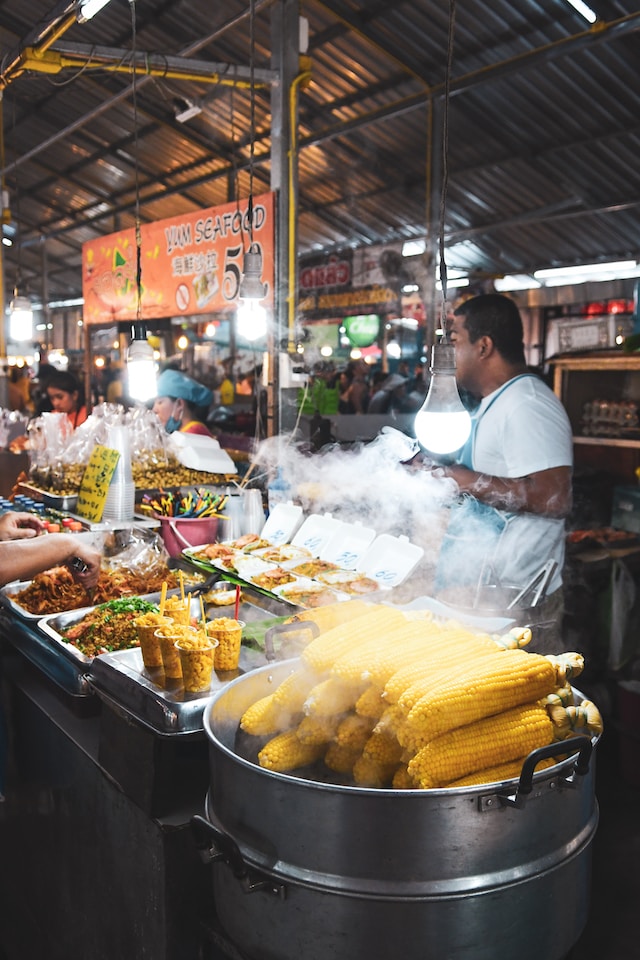
Food vendor, Phuket, Thailand
Things to do in Phuket
Phuket is an island that never gets boring. When you close the laptop for the day, a world of adventure and relaxation opens up. From exploring vibrant local markets to discovering ancient temples, there’s always something new to experience.
For thrill-seekers, the options are endless. You can go surfing, snorkeling, or scuba diving in the crystal-clear Andaman Sea. If you prefer to stay on land, hiking through the island’s lush, green hills offers incredible views and a great workout. And of course, the beaches are the main attraction, perfect for everything from sunbathing to water sports. Phuket truly has an activity for every mood and interest.
Cost of living in Phuket
The cost of living in Phuket remains one of its most attractive features for digital nomads in 2025. It allows for a high quality of life at a fraction of the cost of many Western countries. A single person can live comfortably for about $1,000 to $1,400 per month.
Here’s a rough breakdown of what you can expect for monthly expenses:
| Expense | Estimated Monthly Cost (USD) |
|---|---|
| Accommodation (1-bedroom apt) | $400 – $700 |
| Food (mix of local & Western) | $300 – $450 |
| Transportation (scooter rental) | $80 – $110 |
| Utilities & Internet | $50 – $100 |
| Entertainment & Leisure | $150 – $250 |
Of course, these are just estimates, and your costs will depend on your lifestyle. Eating at local markets is incredibly cheap, with meals often costing just a couple of dollars. Groceries are also very affordable, especially if you stick to local produce.
Outdoor Activities And Adventures In Phuket
For me, the perfect work-life balance in Phuket means taking full advantage of the incredible outdoor adventures right at my doorstep. The island is a natural paradise, offering everything from serene beach days to adrenaline-pumping activities.
Beaches
Phuket is famous for its beaches, and for good reason. With over 30 to choose from, you can find a stretch of sand for any mood.
- Patong Beach: The most famous and busiest beach, known for its vibrant atmosphere and water sports like jet skiing and parasailing.
- Kata Beach: A popular spot for surfers, especially during the low season from May to October. It has a more relaxed vibe than Patong.
- Nai Harn Beach: Located in the south, this is one of my personal favorites. It’s a beautiful, peaceful bay surrounded by green hills, perfect for swimming and relaxing.
- Surin Beach: Known for its crystal-clear turquoise water, making it a great spot for snorkeling and paddleboarding.
Water Sports
The Andaman Sea is your playground in Phuket. The warm, clear waters are perfect for a huge variety of water sports. You can go snorkeling or scuba diving to explore the vibrant coral reefs and marine life. For a thrill, try jet skiing or flyboarding off the coast of Patong. If you prefer something more peaceful, kayaking or stand-up paddleboarding along the coastline at sunset is an unforgettable experience. There are countless tour operators and rental shops along the main beaches, making it easy to get out on the water.
Hiking And Eco-tourism
Beyond the coastline, Phuket’s interior is filled with lush rainforests and green hills perfect for exploring. One of the best spots for trekking is Khao Phra Thaeo National Park, which has beautiful trails leading to stunning waterfalls like Bang Pae and Ton Sai.
Eco-tourism is also a growing focus on the island. You can visit responsible elephant sanctuaries where you can interact with these incredible animals in an ethical way. These experiences allow you to connect with nature and support conservation efforts while enjoying the beauty of Phuket.
Nightlife And Entertainment For Digital Nomads
After a productive day of work, Phuket comes alive with a vibrant nightlife and entertainment scene. Whether you want to dance the night away, enjoy a quiet drink with a view, or explore a lively market, there’s something for everyone.
Bars And Clubs
Phuket’s nightlife is legendary, with a huge variety of bars and clubs to suit any taste. Here are some of the go-to spots:
- Bangla Road: Located in Patong, this is the undeniable heart of Phuket’s nightlife. The street is a dazzling spectacle of neon lights, loud music, and bustling bars, go-go clubs, and large nightclubs that stay open late. It’s an intense but unforgettable experience.
- Rooftop Bars: For a more sophisticated evening, I love heading to one of the island’s rooftop bars. **Baba Nest** at the Sri Panwa Resort offers breathtaking 360-degree views of the Andaman Sea and is perfect for a sunset cocktail.
- Beach Bars: Nothing beats sipping a cold beer with your toes in the sand. Beach clubs like **Catch Beach Club** on Bang Tao Beach offer a chic and relaxed atmosphere right on the water.
Night Markets
Exploring the night markets is one of my favorite things to do in the evening. They have a fantastic, festival-like atmosphere with live music and street performers. It’s a great way to experience local culture and food.
- Naka Market: Also known as the Phuket Weekend Market, this is the largest on the island. You can find everything from delicious street food and fresh fruit shakes to vintage clothing and souvenirs.
- Chillva Market: This market has a cool, bohemian vibe with trendy stalls set up in shipping containers. It’s a popular spot with a younger crowd and features live bands and plenty of great food.
The markets are perfect for a casual night out, offering a chance to eat, shop, and soak in the lively local atmosphere.
Thai Festivals
If you time your visit right, you can experience one of Thailand’s incredible festivals. These events are a vibrant and colorful display of Thai culture and are amazing to be a part of.
- Songkran: The Thai New Year festival in mid-April is the world’s biggest water fight. The streets fill with people celebrating by playfully splashing water on each other. It’s a joyous and refreshing way to beat the heat.
- Loy Krathong: Celebrated in November, this is the beautiful “festival of lights.” People release small, decorated floats (krathongs) onto rivers and lakes to pay respect to the water goddess, creating a magical, twinkling scene.
- Vegetarian Festival: This nine-day festival in October is a unique and intense cultural experience, particularly in Phuket. Participants practice purification rituals, and the streets are filled with parades and incredible vegetarian food stalls.
Transport And Getting Around Phuket
Getting around Phuket is part of the adventure. The island has plenty of transportation options, from ride-sharing apps to the classic tuk-tuks. Here’s how I navigate the island in 2025.
Taxis, Tuk-tuks, And Motorbikes
Taxis and tuk-tuks are everywhere in the main tourist areas, but they can be one of the more expensive ways to get around. It’s always a good idea to agree on the fare before you start your journey, as prices can be heavily negotiated.
For quick, short trips, motorbike taxis are a fast and exhilarating option. Just be sure to wear a helmet and hold on tight!
Ride-sharing apps are a game-changer for convenience and fair pricing. The most popular ones here are **Grab** and **Bolt**. I’ve found that Bolt is often slightly cheaper, but Grab usually has more drivers available. Using these apps takes the guesswork out of negotiating fares.
Renting A Car Or Scooter
For true freedom and flexibility, nothing beats renting your own scooter. It’s the most popular and cheapest way for nomads to explore the island, with daily rentals costing around 200-300 baht. Monthly rentals can be as low as 3,000-4,000 THB.
**Insider Tip:** A common scam involves rental shops blaming you for pre-existing scratches. I always take a detailed video of the scooter on my phone before I drive away, pointing out any existing damage. This has saved me from disputes more than once.
If you’re not comfortable on two wheels, renting a car is a safer option, especially if you’re traveling with family or lots of gear. Just remember to have your international driving permit, as police checks are common.
Public Transport Options
Phuket’s public transport system has been improving, offering some great budget-friendly options for getting around.
- Songthaews: These are the iconic blue open-air trucks that run on set routes between Phuket Town and the main beaches. They are very cheap, typically costing 30-50 baht, but they don’t run on a strict schedule.
- Phuket Smart Bus: This is a more modern, air-conditioned bus service that runs along the west coast from the airport all the way down to Rawai. A single journey costs a flat 100 THB, making it a comfortable and affordable way to travel between the popular beach towns.
Staying Safe And Healthy In Phuket
Phuket is a very safe place to live and travel, but like anywhere in the world, it’s smart to take some basic precautions to stay safe and healthy during your stay. A little awareness goes a long way.
Health Precautions
Staying healthy is key to enjoying your time on the island. The tropical climate is amazing, but it requires a few adjustments.
- Stay Hydrated: The heat and humidity can be intense. I always carry a water bottle with me and make sure to drink plenty of fluids throughout the day. Stick to bottled or filtered water.
- Mosquito Protection: Mosquitoes are common, especially around dawn and dusk. To protect against mosquito-borne illnesses like dengue fever, I use an insect repellent containing DEET, especially if I’m hiking or near still water.
- Travel Insurance: This is non-negotiable for me. Healthcare in Phuket is good, but it can be expensive. Having comprehensive travel insurance from a provider like **SafetyWing** gives me peace of mind knowing I’m covered in case of an emergency.
Crime And Safety Advice
Phuket is generally very safe for tourists and expats, but it’s wise to be aware of your surroundings, especially in busy areas. The most common issues are petty crimes like pickpocketing, which can happen in crowded places like Patong’s Bangla Road.
I always keep my valuables secure and am mindful of my belongings in bars or markets. When renting a scooter, a common issue is getting overcharged for pre-existing damage, which is why I always document the vehicle’s condition with a video beforehand. By taking these simple steps, you can avoid most potential problems and have a stress-free experience on the island.
Conclusion: Why Phuket Is An Ideal Destination For Digital Nomads
So, after revisiting in 2025, my verdict is in: Phuket is still an absolutely ideal destination for digital nomads.
The island strikes a perfect balance between a laid-back tropical lifestyle and the essential infrastructure we need to thrive. With its affordable cost of living, fantastic food, and reliable internet, it just works.
You have access to a wide range of co-working and co-living spaces, from the bustling hubs in Patong to the quieter spots in Phuket Town, making it easy to find your perfect work environment.
But more than that, it’s the community and the lifestyle. Whether you’re networking with other remote professionals, exploring stunning beaches, or immersing yourself in the rich local culture, Phuket offers an experience that goes far beyond just work. It’s a place where you can truly build a life you love.
FAQs:
- What are the best places to work remotely in Phuket as a digital nomad?
Phuket offers plenty of great options. For dedicated workspaces with strong communities, check out co-working spots like HATCH in Phuket Town or Grind Time in Chalong. Many cafes also offer reliable Wi-Fi and a great atmosphere for working, especially in areas like Rawai and Cherngtalay.
- How can I find affordable accommodations suited for digital nomads in Phuket?
Finding affordable long-term accommodation is easiest during the low season (May-October). Look for serviced apartments or condos in areas popular with expats like Rawai, Chalong, or Kata. Websites like Airbnb often have monthly discounts, and local Facebook groups for expats in Phuket are a great resource for finding direct rental listings.
- What are some things to do during off-hours while visiting Phuket as a digital nomad?
There’s so much to do! You can explore over 30 different beaches, go hiking to viewpoints like the Big Buddha, take a boat trip for snorkeling or diving, or explore the historic streets of Old Phuket Town. The island is also famous for its vibrant night markets, like the Naka Weekend Market, and incredible food scene.
- Are there any visa requirements digital nomads should know about before traveling abroad to Phuket?
Visa rules can change, so it’s critical to check the latest regulations with your local Thai embassy. As of 2025, many nationalities get a 60-day visa-free entry, which can be extended for another 30 days. For longer stays, Thailand has introduced the Destination Thailand Visa (DTV), designed for digital nomads. It’s a 5-year, multiple-entry visa allowing a stay of up to 180 days at a time, but it has specific requirements, like proof of funds.
